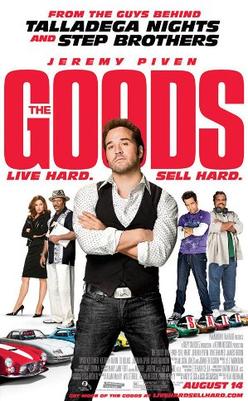
The Ladykillers, 2004
Dir: Joel (and Ethan) Coen
August 28, 2009
I can say now that I have seen every feature that the Coens have made. It's been a pretty good ride; it's too bad that it ran out of gas with The Ladykillers. I think it's second nature to be wary of remakes, and this film really doesn't do anything to improve my feelings. I have never seen the original (1955), but anything with both Alec Guinness and Peter Sellers must be incredible. This remake isn't awful, it just really isn't a Coen Brothers film. They wrote the script, but were not supposed to direct. When Barry Sonnenfeld dropped out, they were offered the directing reins as well. I'm not really sure if they had some studio people watching their every move, but they tried to be subtle with their own personal touches and most of them just fall flat.
A merry band of criminals posing as musicians led by an eccentric southern dandy professor (Tom Hanks) hatch a plan to use the basement of an old lady (Irma P. Hall) to dig a tunnel straight to the store room of a steamboat casino and steal the loot. What follows is a comedy-of-errors, "ignorance is bliss" romp that is steeped in great atmosphere and mood but lacking in substance. The Deep South setting is used very well with both the main character's dialogues and some great gospel tunes which help to cover up some of the films many failings. The religious undertones and Christian metaphors (basement/evil, gargoyles and the trash island in the middle of the harbor/sea [heaven or hell?]) are a bit heavy handed, as are the E.A. Poe references, but you get the point. Changing Charon's ferry to a trash barge (because that's what the criminals basically are, duh) was actually the one clever thing that I really liked in the film.
The odd thing is that the most obviously glaring sore spot of the film is the writing. It's as if it was written by someone trying to ape the Coens' schtick but got really lazy. Maybe they were rushed, I don't know. But for guys who usually give lots of love to the support, they left them gimmicky. Sure they have weird things about them as usual, but that's about it. Marlon Wayans cat callin' big booty bitches and sayin' things like "damn skippy!" seems a bit hollow. And J.K Simmons's Garth Pancake has irritable bowel syndrome. Really? Fart jokes? The General (Tzi Ma) is alright, but Lump (Ryan Hurst) is just plain annoying. The professor, for his part, is laughably befuddling ("Madam, you are addressing a man who is quiet, yet not quiet, if I may offer a riddle?") and his sniveling laugh is just strange coming out of Hanks, so a decent job I think. Hall is good too, for her part, but a bit too demonstrative for her role, which should have her being way more daft. With writing, most of the time I would give the Coens the benefit of the doubt, but here you really can't. They know, and have proved, that they can do much better.

















